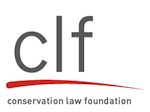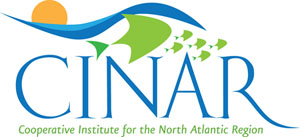This summer, teams of high school age youth from around the Gulf of Maine learned how to study the environment with an eye to solving problems, practice public speaking skills and make new friends at the Gulf of Maine Institute’s (GOMI) eleventh International Summer Workshop.
On July 2, students and their mentors from Sackville, New Brunswick; Queens North, Barrington and Digby/Islands Nova Scotia; Concord and Laconia, New Hampshire: and Essex and Newburyport, Massachusetts, convened in Massachusetts at Governors Academy, Byfield, next door to Newburyport. The workshop was hosted by Newburyport’s team, led by John Halloran—a 2011 recipient of the Gulf of Maine Council’s Visionary Award—and the U.S. Fish and Wildlife Service Parker River National Refuge.
At the workshop, the youthful participants honed public speaking and civic engagement skills, developed friendships across geographic and political boundaries, reported on their work back home, attended lectures and seminars on the Gulf of Maine watershed, global warming and the right whale, studied via boat the headwaters of the Merrimack River and joined field-based themes to investigate specific aspects of the Newburyport environment.
“It taught me so much more about the wildlife and environment in the Gulf of Maine region. I improved on my communication skills, learned a lot about teamwork, and made new friends from Atlantic Canada and New England,” said Drew McCarthy of Barrington, Nova Scotia.
Home to the US Fish and Wildlife Services Parker River National Refuge and a designated “green” city, Newburyport provided the rich mixture of natural and human challenges requisite to a successful GOMI Summer Workshop field experience.
The workshop’s field-based themes highlighted local environmental issues and encouraged youth to think bioregionally while acting locally. Theme topics included: Newburyport—Developing a Sustainable City; Telling the Story through Digital Photography; Human Uses and Land Use Practices: Invasive Species; Water Quality; and Climate Change and Solutions.
 These three-day field-based sessions were led by local experts from the Parker River Refuge, Newburyport’s Mayor’s office, GOMI alumni, New England Alliance for Climate Education (NEACE), and local environmentalists and educators.
These three-day field-based sessions were led by local experts from the Parker River Refuge, Newburyport’s Mayor’s office, GOMI alumni, New England Alliance for Climate Education (NEACE), and local environmentalists and educators.
“I learned so much more than I had during my biology classes that I can relate to my life, and since I’m continuing my education to become an Environmental Technician specializing in water quality I can actually use what I learned,” said Haley Newall, a senior at Barrington High School, Nova Scotia.
Students were assigned to themes in a manner that ensured representation from all participating communities, thus each theme became a micro-demographic of the whole. At the close of the day, youth representatives from each theme reported back the entire workshop. At these sessions the connections among the various themes were made and discussed.
“We went to Plum Island and did a beach survey. We got to see how far the water line and storm surge line went up with only a meter of sea level rise. Using our data calculations we figured out that most beachside homes would be destroyed and that there would be no beach left,” said Faith Titus of Digby Islands, Nova Scotia.
“The other part of the survey was to ask men, woman and children about climate change and their view of it,” Titus added. “I personally found with my research that many people did not care or worry about climate change, nor did they think it would affect them.”
In the sultry 90-degree heat, as beachgoers sunbathed on the sands of Plum Island’s beach and swimmers frolicked in the surf, the GOMI students:
• Assessed the island’s beach and residential shoreline for potential effects of climate change.
• Photographed and recorded the nesting Piping Plovers.
• Assessed human impact on the refuge’s Great Marsh (The “Great Marsh,” the largest continuous salt marsh north of Long Island Sound).
• Identified and removed the invasive plant species Purple Loosestrife from the Marsh.
• Tested the water quality to determine its viability for fish habitat in the refuge’s North Pool.
• Bicycled through the city of Newburyport to view key “green” innovations and interview visionaries, innovators, and doers.
“Even the bikes we all used were refurbished and are being shipped out to Kenya for school teachers to get to school with,” said Ashley Smith of Digby Islands. “I enjoyed this group a lot; it gave me hope for a bright environmental future.”
“It shows us that two nations can come together and work together to revive a bioregion and restore mother nature’s habitat,” said McCarthy.
 “As a recent NHS graduate engaged in GOMI for over four years, GOMI provided real-life experiences to transition to young adulthood. All were valuable lessons,” said Matt Orlando of Newburyport. “Serving as a representative to the Regional 8 Towns and A Bay Council enhanced my leadership skills. All have helped my transition to becoming a responsible adult.”
“As a recent NHS graduate engaged in GOMI for over four years, GOMI provided real-life experiences to transition to young adulthood. All were valuable lessons,” said Matt Orlando of Newburyport. “Serving as a representative to the Regional 8 Towns and A Bay Council enhanced my leadership skills. All have helped my transition to becoming a responsible adult.”
Roger Outhouse, Digby Islands team founder and retired high school science teacher, summed up the workshop, “The experience of this conference is of great importance. It teaches and spreads awareness in the adults of tomorrow… initiatives like the GOMI are crucial to bringing this concept alive.”
Toward the closing of the workshop each community team reported on their project plans for the coming year. A final closing ceremony, focusing on renewal and connection, included the planting of an indigenous tree and bagpipers’ farewell to the tune of “Amazing Grace“.
The pipers, three young ones, had been recruited by GOMI youth from a workshop for bagpipers being run concurrently on the Academy’s campus.
****
“The peak test of true leadership and stewardship is what each team will be able to achieve in its home community. Our next GOMI installment will be report from back home on the challenges and successes GOMI teams are experiencing as they implement projects in their communities.” — John Terry, president, GOMI
Print



















